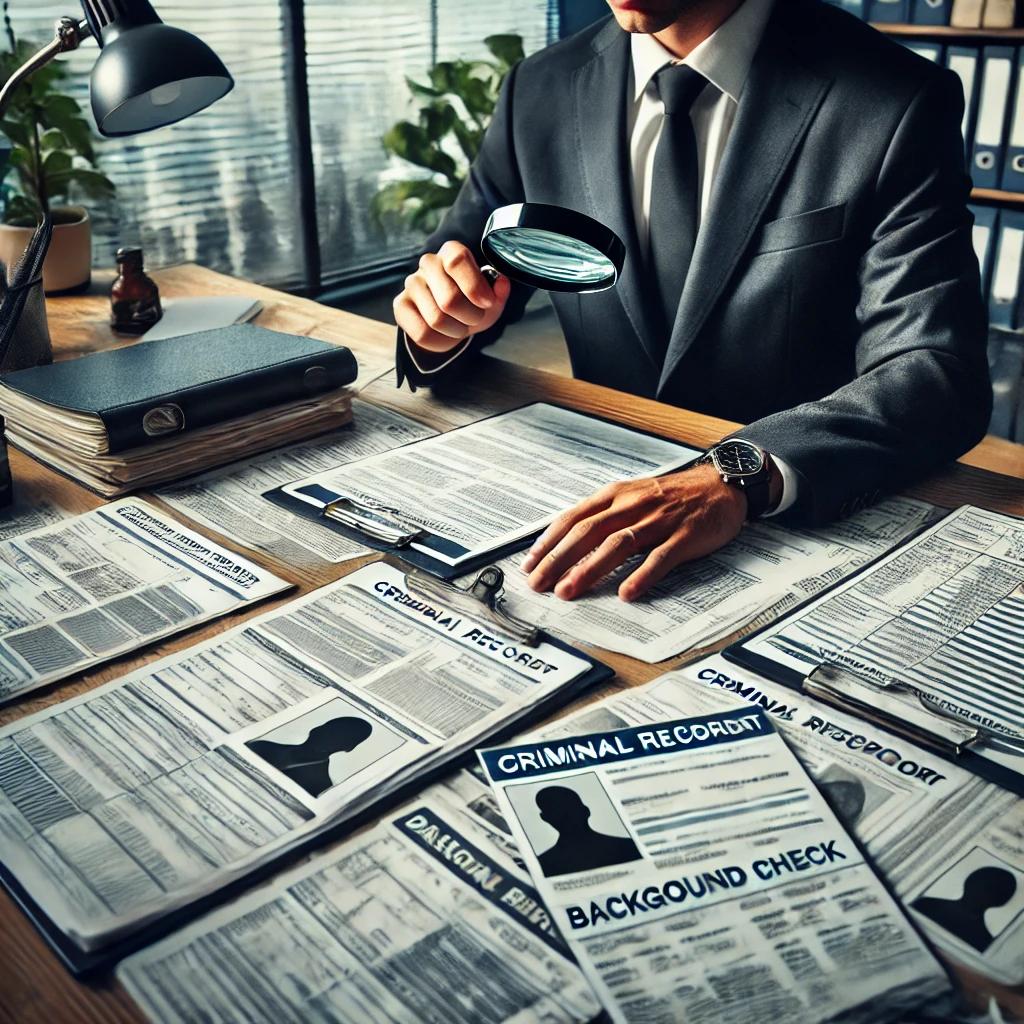Criminal Defense
Private investigators (PIs) can be invaluable assets in a criminal defense trial, providing critical support to the defense team.



Here are several ways in which a PI can be utilized for the defendant:
1. Gathering Evidence
PIs can independently gather evidence that might support the defendant’s case, such as:
-
- Locating and interviewing witnesses: Identifying and interviewing witnesses who may have been overlooked by law enforcement.
- Collecting physical evidence: Finding and preserving evidence that can corroborate the defendant’s version of events.
2. Witness Testimony Verification
PIs can verify the credibility and reliability of witnesses:
- Background checks: Investigating the backgrounds of prosecution witnesses to uncover any criminal history, biases, or motives to lie.
- Witness interviews: Re-interviewing witnesses to uncover inconsistencies or additional information that may benefit the defense.
3. Crime Scene Analysis
PIs can conduct their own analysis of the crime scene:
- Reconstructing the scene: Providing a different perspective or uncovering overlooked details that could challenge the prosecution’s narrative.
- Photographic and video evidence: Documenting the crime scene conditions, which can be used in court to support the defense’s arguments.
4. Surveillance
PIs can perform surveillance to gather information about the case:
-
- Monitoring activities: Observing and documenting the activities of key individuals involved in the case, including witnesses and suspects.
- Identifying new leads: Discovering new evidence or leads that law enforcement may have missed.
5. Reviewing and Analyzing Evidence
PIs can review and analyze the evidence collected by law enforcement:
- Finding inconsistencies: Identifying inconsistencies or gaps in the prosecution’s evidence.
- Expert consultation: Consulting with forensic experts to challenge the validity of the evidence presented by the prosecution.
6. Locating Exculpatory Evidence
PIs can find evidence that proves the defendant’s innocence:
- Alibi verification: Gathering evidence to confirm the defendant’s alibi during the time of the crime.
- Alternative suspects: Identifying and investigating potential alternative suspects who may have committed the crime.
7. Providing Court Testimony
PIs can testify in court to support the defense:
-
- Expert testimony: Offering expert testimony on the evidence they have gathered and their investigative findings.
- Challenging prosecution evidence: Testifying to dispute the prosecution’s evidence and presenting their own findings.
8. Fraudulent Workers' Compensation Claims
- Situation: An employee files a workers’ compensation claim for an injury, but the employer suspects the claim is fraudulent.
- PI’s Role: The PI monitors the employee to gather evidence of their actual physical condition and activities, determining if the injury is legitimate or fabricated.
9. Background Investigations
- Situation: There is a need to verify the background and activities of an individual, such as a potential business partner or a new hire.
- PI’s Role: The PI conducts discreet surveillance to verify the individual’s claims, behavior, and associations, providing a comprehensive report.
10. Verification of Alibis and Claims
- Situation: An individual makes specific claims or provides an alibi that needs to be verified.
- PI’s Role: The PI conducts surveillance to corroborate or disprove the claims, providing factual evidence of the individual’s activities and whereabouts.
Example Scenarios
1. Case of Wrongful Accusation
- Situation: A defendant is wrongfully accused of a crime and has an alibi that needs verification.
- PI’s Role: The PI locates and interviews alibi witnesses, gathers video footage from nearby businesses, and collects timestamped receipts to prove the defendant’s location at the time of the crime.
2. Case of Police Misconduct
- Situation: A defendant claims that evidence was planted or that their rights were violated during the investigation.
- PI’s Role: The PI investigates the conduct of the police officers involved, interviews other suspects or witnesses, and gathers evidence to support claims of misconduct.
3. Case of Self-Defense
- Situation: A defendant claims they acted in self-defense but lacks evidence to support their claim.
- PI’s Role: The PI gathers evidence of threats or prior incidents involving the alleged victim, interviews witnesses to the altercation, and collects any available video footage.
Private investigators can provide crucial support in criminal defense trials by gathering and analyzing evidence, verifying witness testimony, conducting surveillance, and offering expert testimony. Their independent investigations can uncover new information, challenge the prosecution’s case, and help ensure a fair trial for the defendant.
Contact us today at info@dfwinvestigators.com for a discreet consultation.
